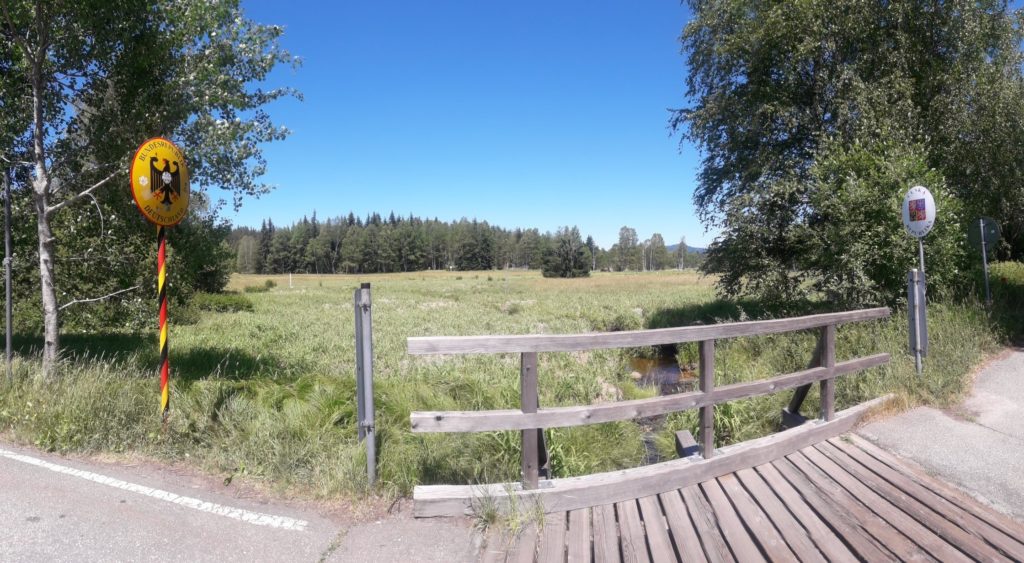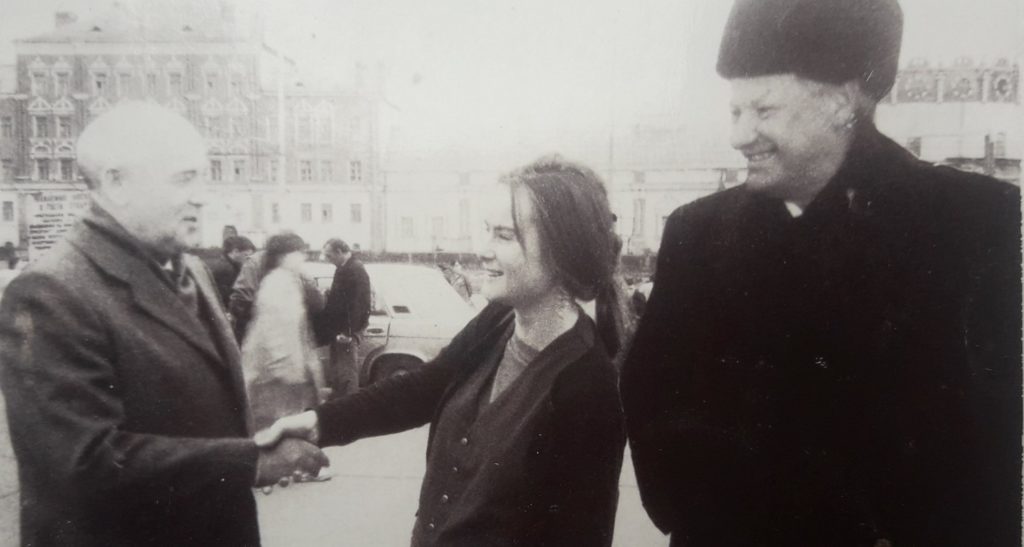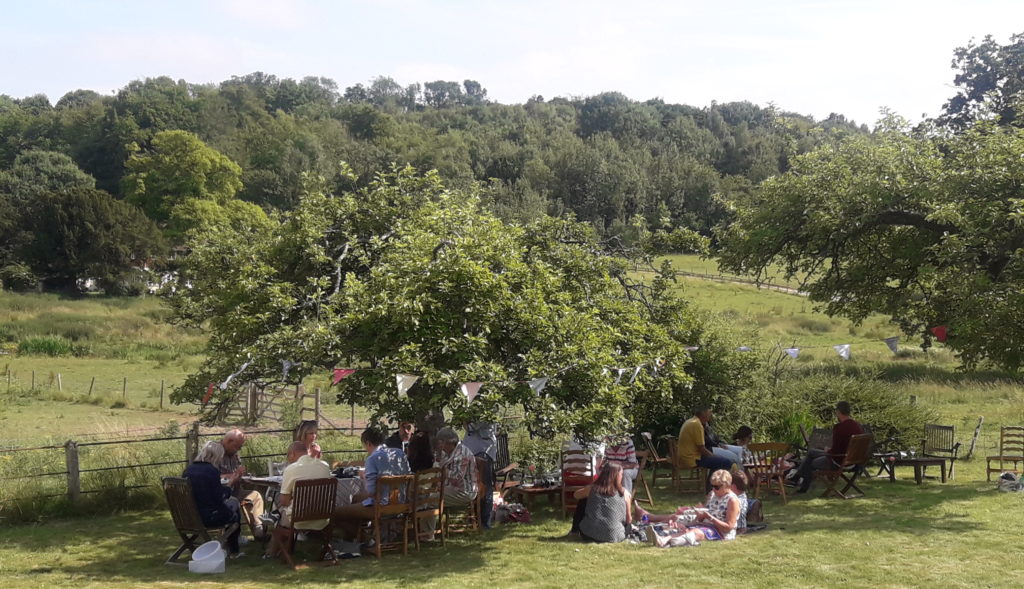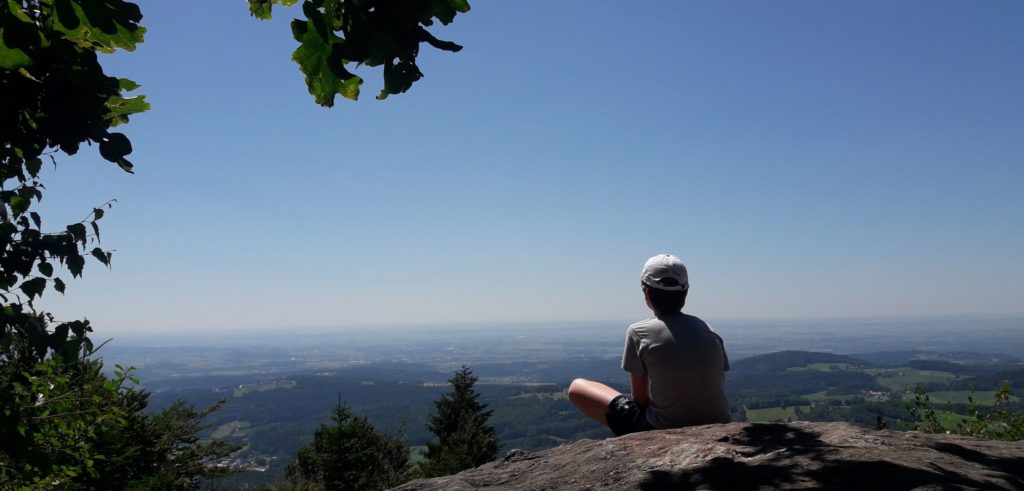-
German memories (Weekly blog, 7 July 2019)
Posted on July 7, 2019
German Schloss Neuschwanstein © Thomas Wolf, www.foto-tw.de [CC BY-SA 3.0 de (https://creativecommons.org/licenses/by-sa/3.0/de/deed.en)]
Castles in the air?
On Monday, I met some German MPs who are thinking of setting up a National Trust. I’ve always loved meeting people and talking to them about my work. And this was no exception. Our guests were well-informed about the work of the National Trust, although less familiar with INTO. So it was good to be joined by NT colleagues with much more in-depth knowledge of the organisation. And to introduce INTO, particularly our German member organisation Kulturerbe Bayern.
There a German word, Luftschloss. Which translates as castle in the sky. One often wonders whether these meetings will lead to anything. However in this case, I felt that the team were very smart and committed, and likely to succeed. I look forward to working more with them as their thinking develops.
German Wanderlust
Meeting the MP and his staff gave me a chance to practise my German. It was therefore well-timed the day after I returned home from a weekend in Bavaria. I had been at my school penfriend’s birthday party. Although it was 28 years since I lived with her parents while at Passau University, it was lovely to see Heidrun, her family and friends again. It took a while for my German to come back and if I’m honest, it didn’t completely. But I’m inspired to practise a little more and am thinking of setting up a German conversation group.

The party was at Haidmühle which is near the border crossing between Germany and Czech Republic at Nové Údolí
À quoi ça sert?
The trip to Germany came closely after a talk I gave at my old school. The lecture was about the part languages have played in my life. I felt a bit of a fraud as whilst I studied languages, I don’t use them much these days. But as I reflected on my life and career, I realised that they were vital to every job I’ve had. These days here in the UK, most children give up foreign languages as soon as they are able to. They do this because they think they are a) hard and b) pointless. (There was an article that came out before my talk on the exam difficulty. And another afterwards by the British Council about the diminishing use of learning foreign languages.)
Reminiscing
So my lecture was supposed to inspire and enthuse the next generation of language learners. Not sure whether it did or not but I certainly enjoyed doing it. The preparation involved reminiscing about my school days. Living in your family home means having access to a huge archive! Thus I was able to find the diary of my first French exchange. (I seemed to have been obsessed with the food!) The programme of a school play I was in. Letters home from living in Germany, Italy and Russia as a student. And much more besides.

Introducing INTO
Of course, I also talked about INTO and our work with National Trusts all over the world. I have the most fantastic job and I hoped that my story would encourage everyone to stick with their language learning. They are hard, but not if you have a reason to learn. Like living in a different place or falling in love with someone from overseas. Or in fact, wanting to really understand the culture of another country. There is a reason diplomats are trained to speak foreign languages. How can they do their jobs if they don’t fully understand the other country and culture? And how much better can they negotiate if they speak the other person’s language? This applies to any other kind of business as well as diplomacy. Even the German MPs were impressed by my few words of German!
A rose by any other name?
Lastly, speaking a foreign language can change the way you see the world. There is a great TED Talk by Lera Boroditsky on the subject. But in essence, the words we use influence the way we think. This can also be the case in our own language, let alone a foreign one. But understanding that not everyone thinks in the same way is really important. Especially today when our world is so uncertain and fractured.

Family party
At the weekend, we held a party to celebrate fifty years since my parents bought our family home. It was a crazy day! Over a hundred people from both sides of the family along with local friends. Actually it was quite emotional. My Dad, who died nearly nine years ago now would have loved it. He was quite an introverted chap but a good conversationalist. Intelligent and interested in other people. He also loved River House and would have loved to see so many people there enjoying and celebrating it. I miss my Dad greatly. Days like that remind us how lucky we were. And how much love surrounds us still.
Parting words
I ended my school lecture with some words, a variation of which I have used many times because I think they are important:
“We live in an uncertain world at the moment and I think, however we chose to do it: by speaking to someone in their native tongue or by being more patient and understanding when someone is speaking to us in our language or by being open, reaching out and connecting with people from other countries, we really must continue to uphold the values of internationalism and solidarity that have been so hard fought for by our ancestors.”


 44 (0)20 7824 7157
44 (0)20 7824 7157